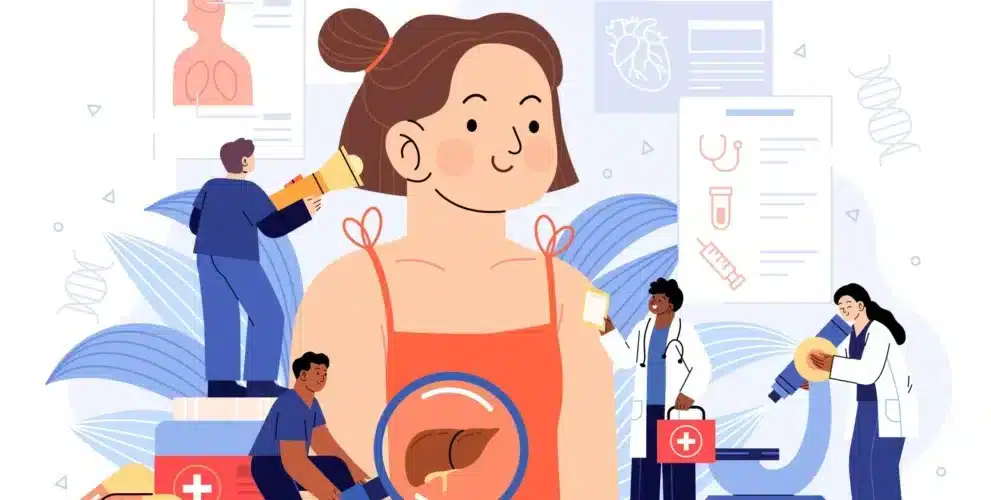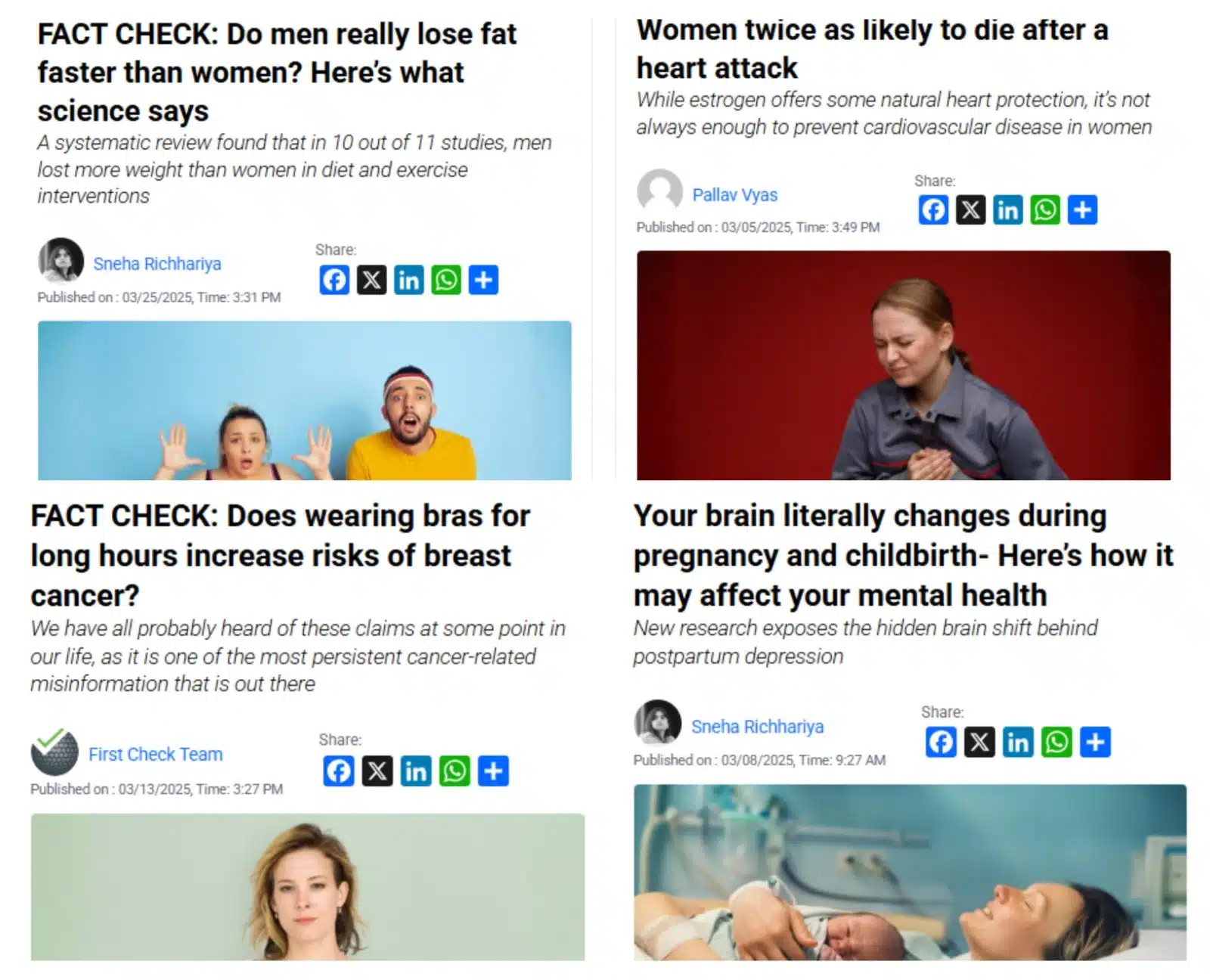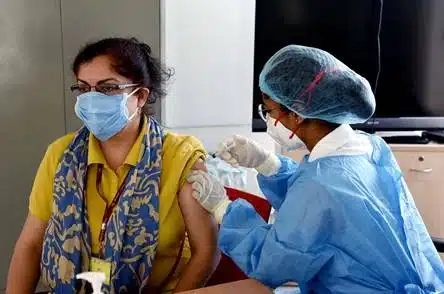
Author
Hello!
As promised in the previous newsletter, the month of March was dedicated to Women’s Health at First Check, where we focused on women centric stories. However, while we had started out to educate our readers and arm them with credible and verified information, it was us who truly learnt something by the end of this exercise.
We found that men lose fat faster than women due to their higher muscle mass, metabolism, and hormonal differences. We also found that women are 30 times more susceptible to UTIs than men, they are twice as likely to die of heart attacks, BPAs can negatively impact female fertility, and that women’s brains change during pregnancies. We also debunked the age-old myth that wearing bras can increase breast cancer risk.

However, what was the most glaring is that women till date are paying the price for gender biases that crept into healthcare pedagogy, eons ago. We found that historically, women had been excluded from medical research, with studies conducted on men and those results being generalised to women- which means safety concerns, side effects, even ideal dosages are all mostly based on studies conducted on men. “The common practice of prescribing equal drug doses to women and men neglects sex differences in pharmacokinetics and dimorphisms in body weight, risks overmedication of women, and contributes to female-biased adverse drug reactions,” according to a 2020 study.
One of the most devastating consequences of the gender bias has been that symptoms reported by women are often times disregarded, especially complaints of pain. Research has repeatedly found that women were less likely to be prescribed pain killers than men.
While it is heartening to see that gender biases in medicine and misogynistic attitudes in healthcare are increasingly becoming topics of discussion and even research, it appears that we still have a long way to go. Even in 2022, research found that “females remain broadly under-represented in the medical literature, sex and gender are poorly reported and inadequately analyzed in research, and misogynistic perceptions continue to permeate the narrative.”
At First Check, we understand that women’s health needs to be a part of any conversation we have regarding health, which is why we will continue to highlight these issues in the hopes of bringing about change.
Because remember— Women’s Health also Matters!
And yes! I am happy to hear from you!










